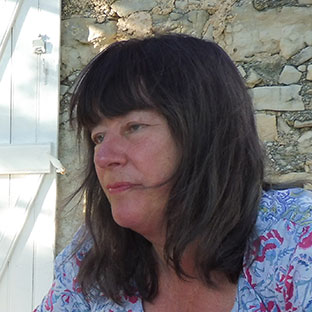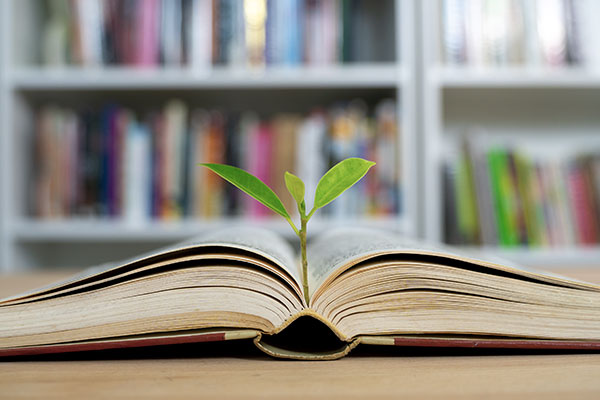With tens of thousands of people dead and many people unable to be with loved ones at the end of their lives or attend funerals, Clem Henricson FRSA asks whether – as we focus on the future – the government should make space for a collective commemoration of what is lost.
Last year, months before the words pandemic, lockdown and social distancing had become all too familiar, I wrote an article for the RSA on Making Space for Melancholy. The proposition was that in a society addicted to the pursuit of happiness, there was insufficient recognition of melancholy as one of the core components of the human experience and that this was detrimental in terms of both culture and psychological wellbeing. The argument prompted appreciation, particularly amongst those engaged in responding to people's emotions.
The darker side of life has become all too vivid since then with Covid-19, and the grief and devastation caused has, if anything, increased the need to make space for melancholy. Public discourse has engaged with the potential for disaster to result in positive change. The talk has been of progress and building back better. While looking to hope in the future is welcome, it needs to go in tandem with thoughts about the dead, dying and bereaved. Our new world needs to make space for both the positive aspects of renewal and the mourning of loss.
The impulse to turn from misery to construction is an understandable one. It featured strongly in the Second World War with the 1942 Beveridge Report. In seeking to reconcile that hope with grief, perhaps what we should do is to incorporate in planning for a better future, proposals for mourning, commemorating, and assimilating our collective loss within the public and artistic domain.
There have been community and individual initiatives, most particularly in respect of the NHS. For example the Thursday clap, Rankin's photographic portraits and Howard Goodall's Never to Forget commemorative choral piece. These are remarkable and indicative of a drive towards recognising and reflecting on the Covid-19 crisis.
Significant omissions exist, however, specifically in relation to victims in the general population; the focus has been almost exclusively on staff. There has also been a conspicuous lack of government-led initiatives. We have no officially sponsored 'pandemic artists' in the vein of 'war artists' and proposals for memorials and other forms of official public commemoration are missing. Concerns over similar failures in the past have been raised in relation to the Spanish flu by Peter Hobbins (2019), and in relation to AIDS and Ebola by Britta Shoot (2020).
The case made against victims of pandemics receiving official commemoration on a par with war victims is that war involves action that has an issue at stake. An alternative perspective is that mass bereavement, however caused, needs full ceremonial recognition and a permanent marker. Such collective rites would offer respect and better enable society to absorb and come to terms with the nature, scale and consequences of what has happened. The absence of acknowledgement and public spaces where people can go and reflect on the trauma of multiple losses can have a detrimental impact on communities similar to the suffering experienced by families who are denied individual funerals. Furthermore, as well as meeting a collective need, such acts and places of remembrance could form a kind of solace for those who could not be with their loved ones when they were dying or attend funerals and grieve with family and friends.
What then are the options for commemorating the victims of a pandemic and how might we do it better? There are recent examples worthy of note that have emerged from non-governmental initiatives. The National Aids Memorial Grove in San Francisco was designed and tended by volunteers for five years prior to being given national monument status in 1996. The memorial in London to the victims of the 2004 Indian Ocean Tsunami was developed over a number of years by the Tsunami Support UK. Following an extensive consultation with the survivors a granite monolith was designed and erected with funding from the Department of Culture Media and Sport.
Going back further in history, Allison Meier in her article How to Memorialise a Plague (2020) describes a renowned government led memorial to the victims of the Great Plague of 1679 commissioned by Emperor Leopold 1. With contributions from several sculptors this elaborate Plague Column is a Viennese cultural attraction. More significantly it is visited as a place of solace and has been used for this purpose during Covid-19. The commemoration of plagues in this way has an historic tradition with simple wooden pillars replaced by more permanent structures in the seventeenth and eighteenth centuries in towns across central Europe.
The scope for remembrance would be wider and more varied if one also included war precedents. As well as the memorials across the country, we are all familiar with the numerous parades, emblems and artistic endeavours – music, painting, literature, films and more – that hold the victims of the two world wars in our collective memory.
The question then is what do we want? And not only what do we want but what do we need? What would be fitting to disease and death on such a scale as Covid-19? As we have seen, there is the possibility of multiple expressions and locations for our melancholy. There are even questions on matters such as the place for remembrance in school teaching. There is also the thin dividing line between too much and too little. A public discussion informed by attitudinal surveys should consider these issues and in doing so receive a committed lead from government.
Clem Henricson FRSA is the author of Morality and Public Policy and A Revolution in Family Policy
Related articles
-
Mindfully managing the fear of epidemics
Duncan Bartlett FRSA
Duncan Bartlett FRSA on the lessons he is taking towards a more positive outlook during this crisis.


Be the first to write a comment
Comments
Please login to post a comment or reply
Don't have an account? Click here to register.